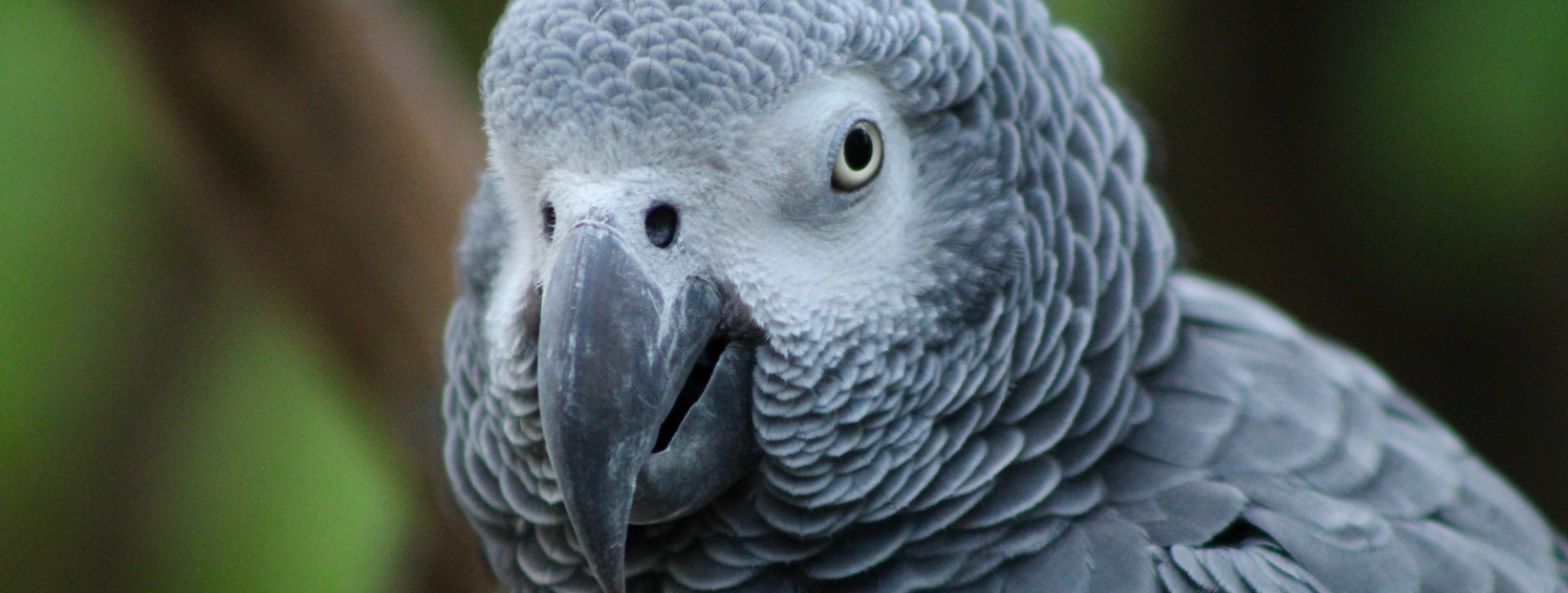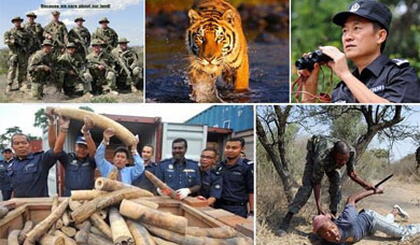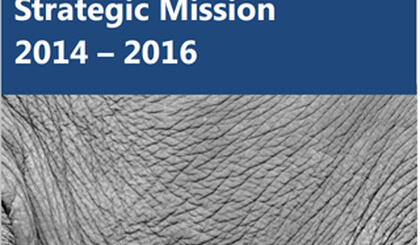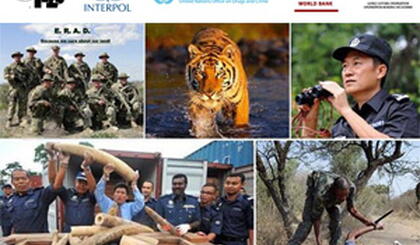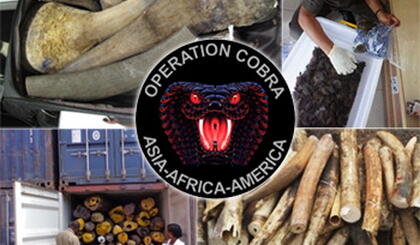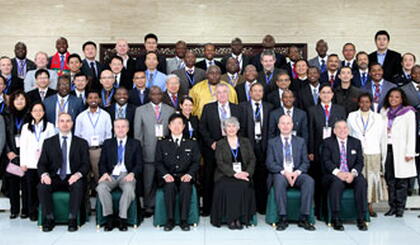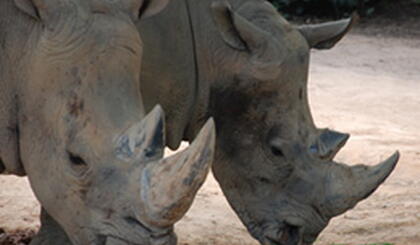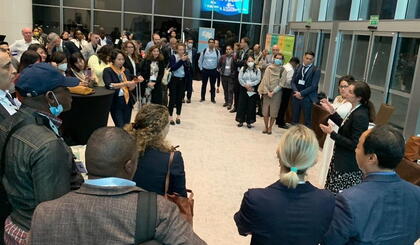ICCWC Senior Experts Group meets in Geneva to review delivery of activities to combat wildlife crime
The Senior Experts Group of the International Consortium on Combating Wildlife Crime (ICCWC) met in Geneva last week to discuss progress with its collaborative activities to combat wildlife crime. Opened by Mr. John E. Scanlon, Secretary-General of CITES, the meeting provided the opportunity for representatives from the five partners of ICCWC – the CITES Secretariat, INTERPOL, UN Office on Drugs and Crime (UNODC), World Bank and the World Customs Organization – to discuss the current and future work programme of
ICCWC launches Strategic Mission 2014-2016 outlining its strategies to combat wildlife and forest crime
The International Consortium on Combating Wildlife Crime (ICCWC) today further strengthened its efforts by launching the ICCWC Strategic Mission 2014-2016 . The document sets out the consortium’s diverse agenda to combat wildlife and forest crime, providing the first strategic framework for the consortium’s activities and future directions since its establishment in late 2010. The ICCWC Strategic Mission 2014-16 outlines five focus areas to be simultaneously pursued by the consortium – strengthening cooperation and coordination, analysing current responses to wildlife and
WCO press release: WCO publishes the Illicit Trade Report 2013
PRESS RELEASE The World Customs Organization (WCO) released its second edition of the Illicit Trade Report . The 2013 Report contains five sections, covering drugs; environment; IPR, health and safety; revenue and security. The Report builds on its first edition, the 2012 Report, and provides a comparative analysis of trends and patters in these five key risk areas of enforcement, based on Customs seizures reported through the WCO Customs Enforcement Network (CEN) database by its Members. The objective of the
ICCWC launches new web portal on combating wildlife and forest crime
The International Consortium on Combating Wildlife Crime (ICCWC) today announced the launch of a new web portal, designed to support capacity-building efforts by improving access to information on ICCWC tools and activities to combat wildlife and forest crime. The dedicated portal on ICCWC, available through the CITES website ( www.cites.org ), provides up-to-date and expanded information on the many tools that ICCWC makes available to support national enforcement agencies and regional enforcement networks in their fight against poaching and illicit
CITES Secretariat welcomes Operation Cobra II results
Geneva, 10 February 2014 – The CITES Secretary-General, Mr John E. Scanlon, today welcomed the excellent results achieved by law enforcement officers from 28 countries during Operation COBRA II, a month-long global operation to combat illegal wildlife trade, which ended on 27 January 2014. “This second Operation COBRA initiative shows what can be achieved when law enforcement authorities across range, transit and destination States work together in a coordinated manner. It also serves to highlight that intelligence-led operations are essential
Controlled deliveries: a tool for reaching the big players in illegal wildlife trafficking
A group photo of the participants to the workshop (click to enlarge) Organized by the World Customs Organization (WCO), under the auspices of the International Consortium on Combating Wildlife Crime (ICCWC), the first international workshop on Establishing a Network of Controlled Delivery Units for Forest and Wildlife Law Enforcement ended on 9 December, after three days of deliberation. Controlled deliveries have long been a tool for investigating drug and tobacco smuggling but their use in wildlife smuggling is more recent
CITES Secretary-General welcomes Resolution of the United Nations Commission on Crime Prevention and Criminal Justice on illicit trafficking in endangered species of wild fauna and flora
During its meeting in Vienna, from 11-15 April 2011, the United Nations’ Commission on Crime Prevention and Criminal Justice adopted a Resolution on “Crime prevention and criminal justice responses against illicit trafficking in endangered species of wild fauna and flora” which was proposed by Chile, Costa Rica, Guatemala, Mexico and the Philippines. Organized criminal networks are known to be involved in the poaching of rhinoceroses, as one example of illicit trafficking in endangered species. The Resolution ( full text attached)
ICCWC begins its work
ICCWC begins its work The Senior Experts Group of the International Consortium on Combating Wildlife Crime (ICCWC) met last week at the United Nations Office on Drugs and Crime (UNODC) in Vienna, Austria. Opened by Mr Yury Fedotov, Executive Director of UNODC, the meeting provided an opportunity for specialized staff of the five partner agencies to plan ICCWC activities in the short and mid-term. Experts agreed to develop a comprehensive programme of work. This programme will exploit the expertise of
Pagination
Filter by
Clear filters